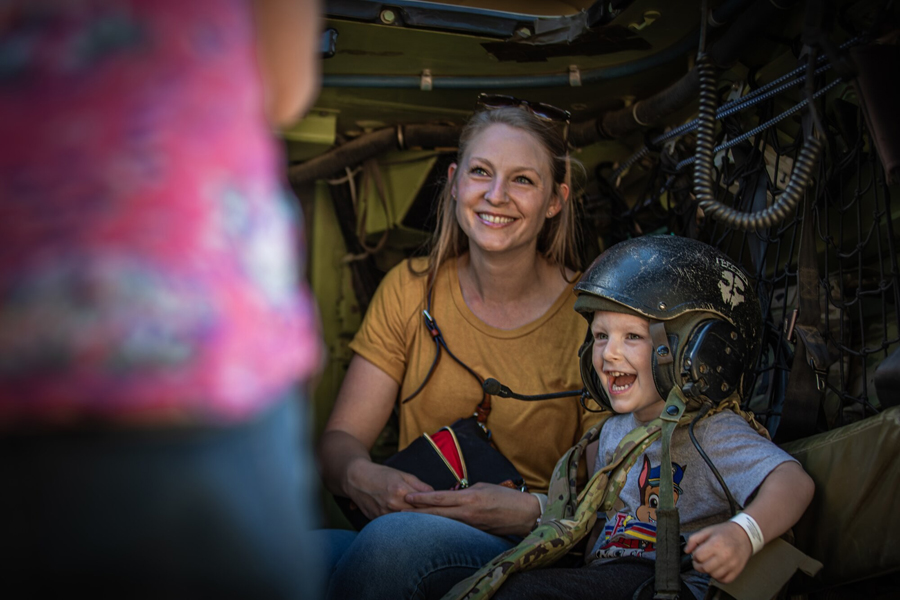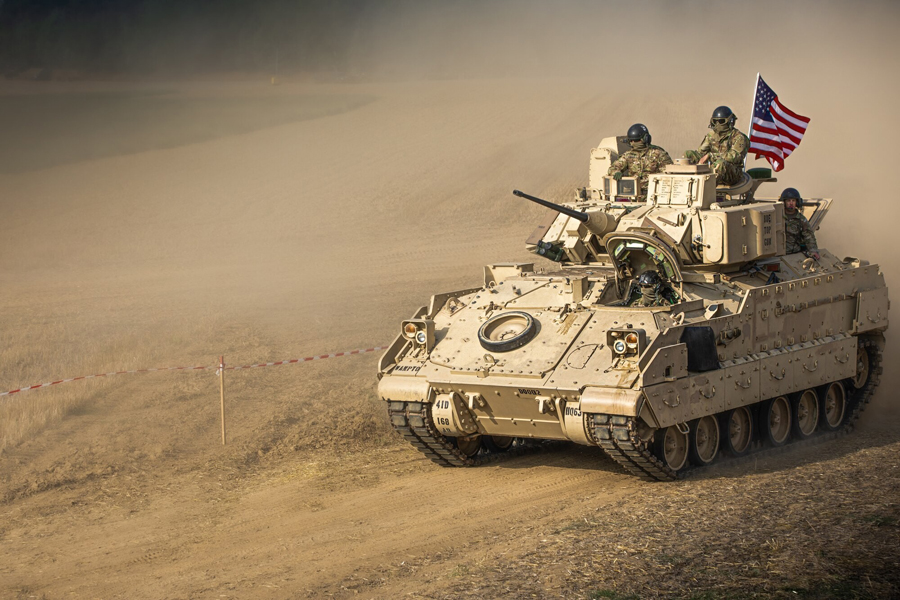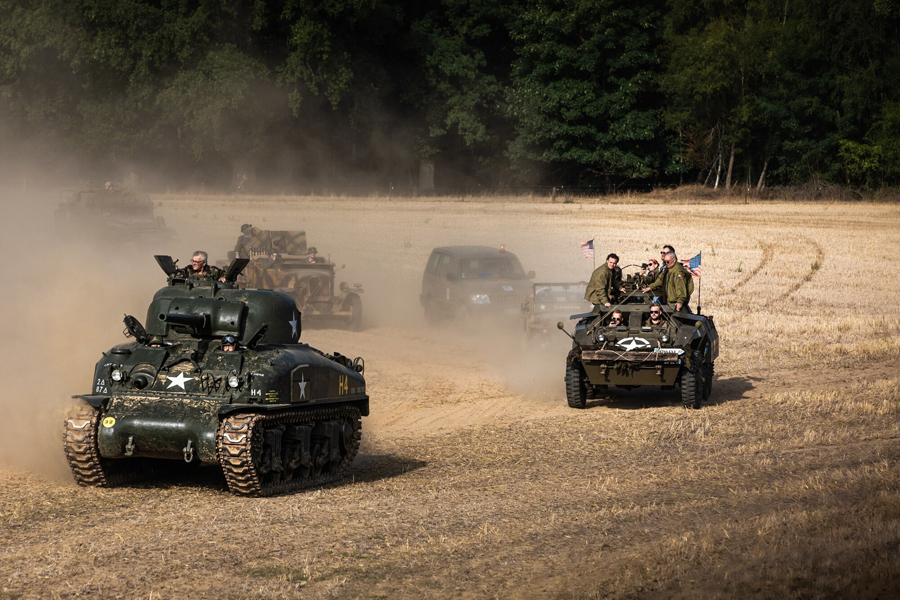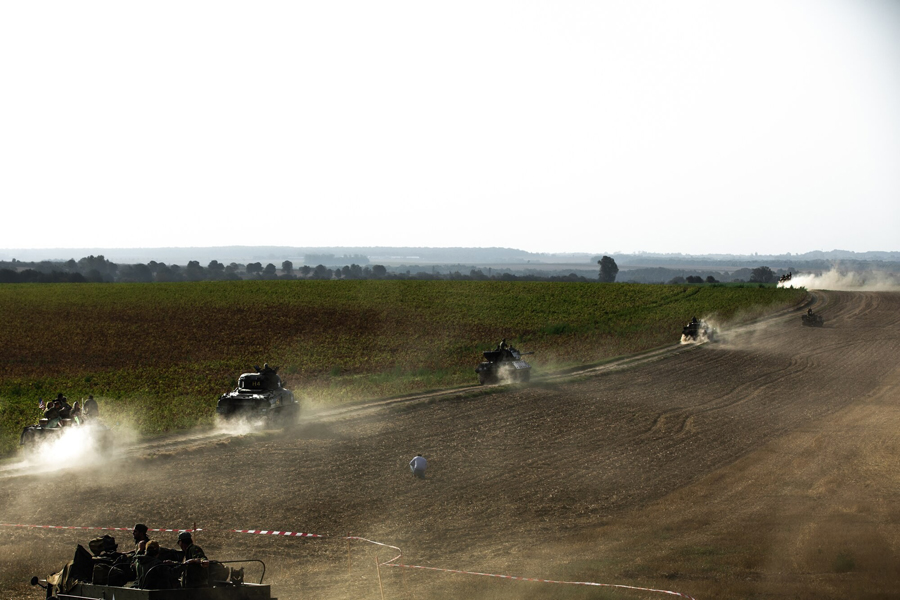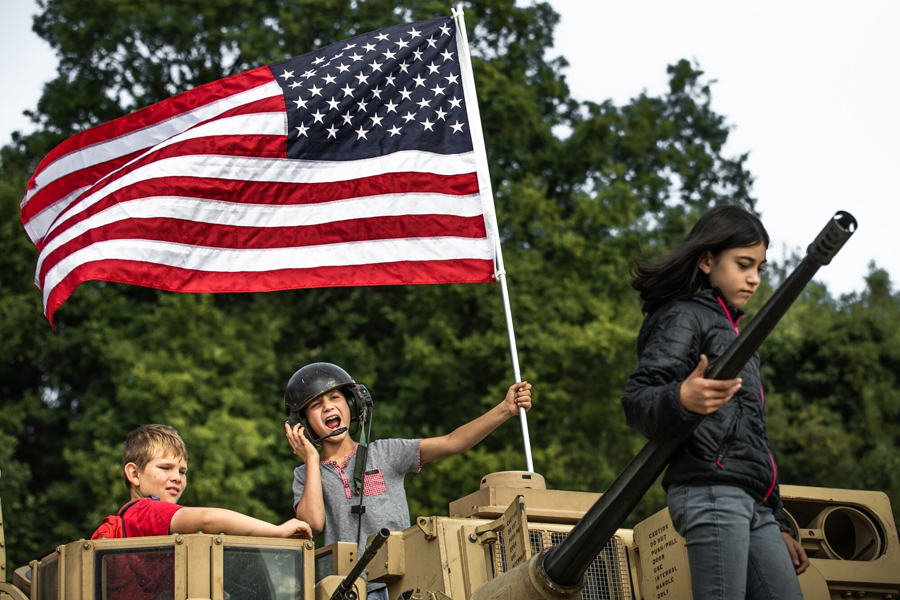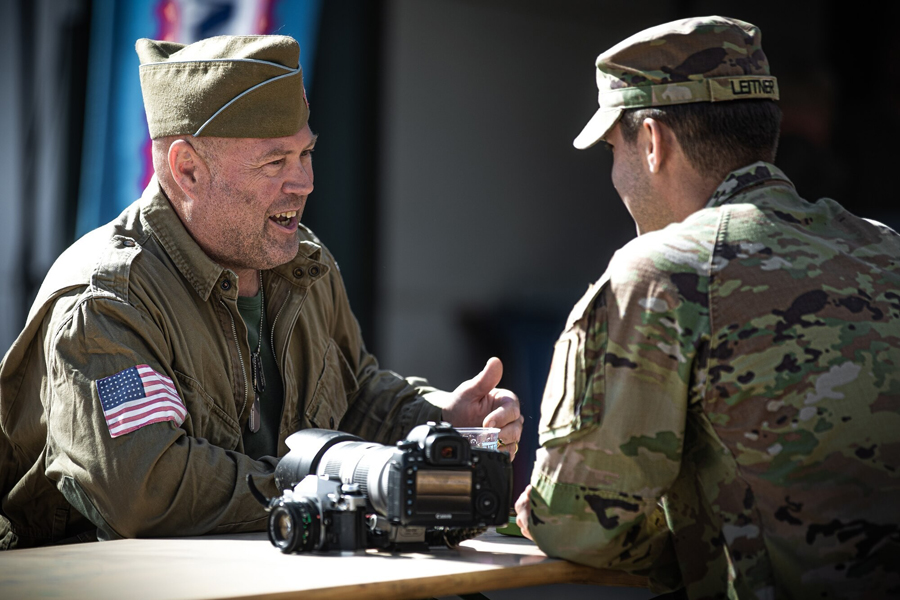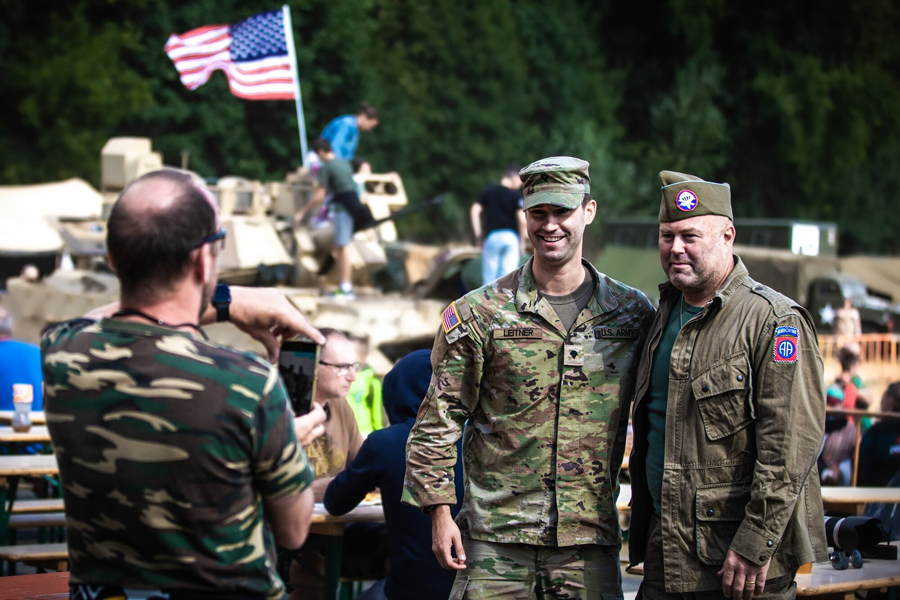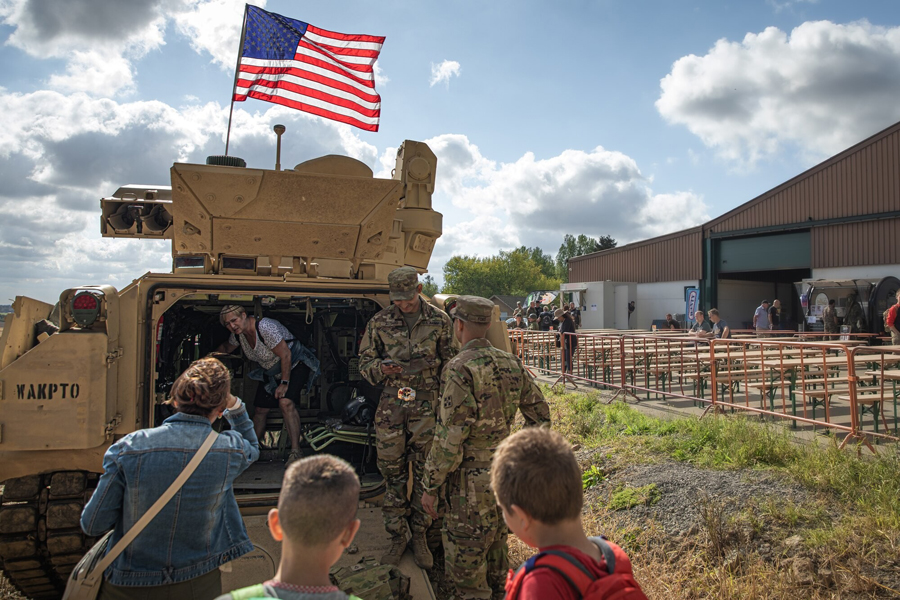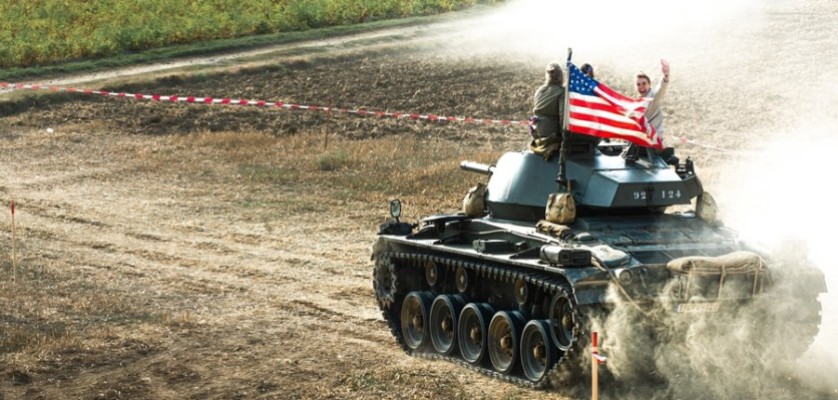U.S. Army Soldiers of 1st Battalion, 68th Armor Regiment, 3rd Armored Brigade Combat Team, 4th Infantry Division, gathered with veterans and historical enthusiasts to support the local community near Mons, Belgium, on Aug. 27 and 28, 2022, to commemorate the liberation of Belgium and the historic Battle of the Mons Pocket.
For the local community, veterans and enthusiasts, who spend hours intricately researching and recreating historically accurate uniforms, memorial re-enactment events like ‘Tanks in Mons’ celebrate the importance of holding on to the stories of history.
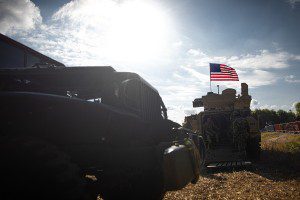
“You get to see through the eyes of those who were there,” said Anita Motemans, a Belgian woman attending the event. “You get to experience the way it was like for soldiers in the war.”
The peace of Hainaut province and the Walloon region seems to be disturbed only by the calls of the donkeys whenever they feel they’ve been ignored. Except for the sounds coming from a company of re-purposed tanks and historical re-enactors, it is difficult to imagine that not one but two major battles in both world wars occurred here near a small town nestled in the countryside along the Franco-Belgium border. But by the end of the summer, in 1914 and 1944, the area experienced battles that would decide the outcome of both global conflicts.
The first major battle of World War I occurred in the region on Aug. 23, 1914, when British forces attempted to hold their lines along the Mons-Condè Canal against an advancing German army. The British agreed to hold the area for 24 hours and had spent the day prior digging in along the canal to prevent the Germans from flanking the French, who were busy fighting a few miles down the road near Charleroi.
On Sept. 2, 1944, almost exactly thirty years later, Allied Soldiers of the 83rd Reconnaissance Battalion, 3rd Armored Division, assisted the Belgians in driving enemy forces from the area in what is now known as the Battle of the Mons Pocket. During the battle, Allied forces succeeded in capturing nearly 25,000 enemy soldiers. In doing so, Belgian and Allied forces could regroup before pushing east towards Berlin.
“To see how technology has progressed between then and now is incredible,” said Staff Sgt. Christopher Babinec, a section leader with 1st Battalion, 68th Armor Regiment, 3rd Armored Brigade Combat Team, 4th Infantry Division, who spent the weekend alongside his Soldiers giving visitors tours of an M109 Bradley Fighting Vehicle on static display throughout the event. “We can kind of see how they fought in the forties with the weapons and vehicles they had.”
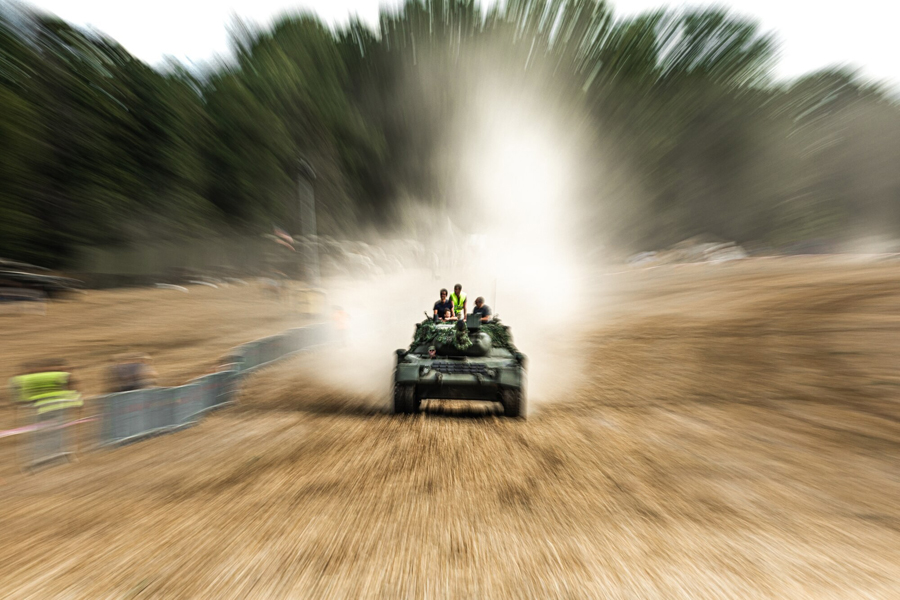
Thousands of visitors had the opportunity to retrace the steps of the liberators in an immersive atmosphere as tanks rumbled through the fields, giving rides for a fare, and collectors of history posed in their military garb while their children climbed on top of the vehicles, a museum’s collection of Sherman tanks, U.S. Army Jeeps and half-tracks.
“Being here is a celebration of the liberation of Belgium from Germany in World War II,” Babinec said. “It’s interesting to see how important our role during that time was and how it continues to affect people.”
Events like Tanks in Mons, which memorialize certain moments of history, are not only symbolic of the liberation of Belgium and Europe but also of the collective history shared by every descendent of that tumultuous era and beyond. For re-enactors, it is a way to give back and preserve history, said Joakim Steinweden, a German re-enactor with the U.S. Military Vehicle Club and the Vice President of Historical Events at the General Creighton W. Abrams Association of the United States Army Chapter in Frankfurt, Germany.
“People in Germany, especially the people that have been old enough to be part of the divided Germany, appreciate the support of NATO and the Americans,” said Steinweden. “During the Cold War, my generation was sleeping safely because of the duty of American Soldiers. The Germans never forgot about the Berlin Airlift. It is still today the strongest symbol for the German-American friendship. We did not forget.”
